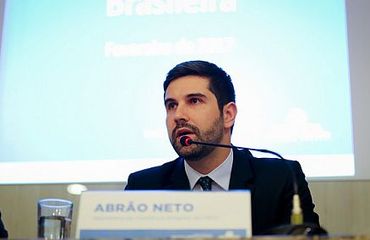São Paulo – The free trade agreement (FTA) between Mercosur and Egypt went into effect last Friday (1), the first between the bloc formed by Brazil, Argentina, Uruguay and Paraguay, and an Arab nation. Signed in 2010, the agreement required ratification by all the countries involved before it could go into effect. In Brazil, it will be applied when a presidential decree on the issue is published, which, according to the government, will occur soon.
In an interview to ANBA via email, the Foreign Trade secretary of the Ministry of Industry, Foreign Trade and Services (MDIC), Abrão Miguel Árabe Neto, pointed out that from the over USD 1.8 billion in bilateral trade between Brazil and the Arab country last year, 78% were made of products covered by the agreement. That is, items liable to import tax exemption. Part of the tax exemptions are effective immediately, and the other part over the next 10 years, when the total of the items covered will reach 99% of trade between the bloc and the African nation.
“Of the products sold by Brazil [that will benefit immediately], we can highlight beef, cereal, ores and inorganic chemical products,” said the secretary. “From Egypt, the main products covered by the FTA are organic and inorganic fertilizers, vegetables, cotton and textile,” he added.
From January to August 2017, Brazil exported USD 1.347 billion worth of goods to Egypt, an increase of 13% over the same period of 2016. On the other hand, it imported USD 119.3 million, up 138.5% in the same comparison, according to data from the MDIC.
“We hope that the FTA entry into effect can boost even more the bilateral trade, strengthening the partnership between Brazil and Egypt,” pointed out Árabe Neto. Read below the main excerpts of the interview:
ANBA – Which are the products that will be immediately covered [by the agreement]?
Abrão Miguel Árabe Neto – The list of products covered by the Mercosur-Egypt Free Trade Agreement (FTA) is extensive. Regarding Mercosur’s exports to Egypt, there are nearly 10,000 products included (with nearly 63% of exports immediately covered). Regarding the products sold by Brazil, we can highlight beef, cereals, ores and inorganic chemical products.
On the other hand, which products exported by Egypt to Brazil will be covered?
Conversely, from the African country to the bloc, the list includes over 7,600 items. From Egypt, the main products covered by the FTA are organic and inorganic fertilizers, vegetables, cotton and textiles.
Is there a forecast on how much bilateral trade can grow with the agreement?
Egypt is an important trade partner of Brazil in Africa. It accounts for 23% of the purchases of Brazilian products in the continent. In 2016, Brazil-Egypt trade reached USD 1.8 billion, from which 78% were products covered by the agreement. We expect that the FTA’s entry into effect can boost even more the trade, strengthening the partnership between Brazil and Egypt.
Is the MDIC planning some type of action promoting the agreement, such as seminars, for instance?
The Mercosur-Egypt Free Trade Agreement will be discussed in the training courses that we offer to Brazilian exporters within initiatives such as the National Export Culture Plan (PNCE), as well as in our frequent talks with Brazilian companies. One of the Plan’s work fronts is the training of exporters. We try to always keep them informed about international agreements and treaties that Brazil have signed.
Another initiative that we have been exploring is to work on the opportunities created by the agreement within the recently created National Committee of Trade Promotion of CAMEX (Chamber of Foreign Trade, the government agency responsible for the sector’s policies), which will include the participation of the government’s main agencies involved with foreign trade.
*Translated by Sérgio Kakitani




